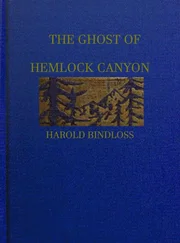Harold Bindloss - The Cattle-Baron's Daughter
Здесь есть возможность читать онлайн «Harold Bindloss - The Cattle-Baron's Daughter» — ознакомительный отрывок электронной книги совершенно бесплатно, а после прочтения отрывка купить полную версию. В некоторых случаях можно слушать аудио, скачать через торрент в формате fb2 и присутствует краткое содержание. Издательство: Иностранный паблик, Жанр: foreign_adventure, foreign_prose, foreign_language, на английском языке. Описание произведения, (предисловие) а так же отзывы посетителей доступны на портале библиотеки ЛибКат.
- Название:The Cattle-Baron's Daughter
- Автор:
- Издательство:Иностранный паблик
- Жанр:
- Год:неизвестен
- ISBN:нет данных
- Рейтинг книги:3 / 5. Голосов: 1
-
Избранное:Добавить в избранное
- Отзывы:
-
Ваша оценка:
- 60
- 1
- 2
- 3
- 4
- 5
The Cattle-Baron's Daughter: краткое содержание, описание и аннотация
Предлагаем к чтению аннотацию, описание, краткое содержание или предисловие (зависит от того, что написал сам автор книги «The Cattle-Baron's Daughter»). Если вы не нашли необходимую информацию о книге — напишите в комментариях, мы постараемся отыскать её.
The Cattle-Baron's Daughter — читать онлайн ознакомительный отрывок
Ниже представлен текст книги, разбитый по страницам. Система сохранения места последней прочитанной страницы, позволяет с удобством читать онлайн бесплатно книгу «The Cattle-Baron's Daughter», без необходимости каждый раз заново искать на чём Вы остановились. Поставьте закладку, и сможете в любой момент перейти на страницу, на которой закончили чтение.
Интервал:
Закладка:
“Well,” said Grant, “I’m willing to let you have it; but I usually try to do the square thing, and you may have trouble before you get your first crop in.”
“Und,” said Muller, “so you want to sell?”
Grant laughed. “Not quite; and I can’t sell that land outright. I’ll let it to you while my lease runs, and when that falls in you’ll have the same right to homestead a quarter or half section for nothing as any other man. In the meanwhile, I and one or two others are going to start wheat-growing on land that is ours outright, and take our share of the trouble.”
“Ja,” said Muller, “but dere is much dot is not clear to me. Why you der trouble like?”
“Well,” said Grant, “as I’ve tried to tell you, it works out very much like this. It was known that this land was specially adapted to mixed farming quite a few years ago, but the men who ran their cattle over it never drove a plough. You want to know why? Well, I guess it was for much the same reason that an association of our big manufacturers bought up the patents of an improved process, and for a long while never made an ounce of material under them, or let any one else try. We had to pay more than it was worth for an inferior article that hampered some of the most important industries in the country, and they piled up the dollars in the old-time way.”
“Und,” said Muller, “dot is democratic America!”
“Yes,” said Grant. “That is the America we mean to alter. Well, where one man feeds his cattle, fifty could plough and make a living raising stock on a smaller scale, and the time’s quite close upon us when they will; but the cattle-men have got the country, and it will hurt them to let go. It’s not their land, and was only lent them. Now I’m no fonder of trouble than any other man, but this country fed and taught me, and kept me two years in Europe looking round, and I’d feel mean if I took everything and gave it nothing back. Muller will understand me. Do you, Breckenridge?”
The English lad laughed. “Oh, yes; though I don’t know that any similar obligation was laid on myself. The country I came from had apparently no use for a younger son at all, and it was kicks and snubs it usually bestowed on me; but if there’s a row on hand I’m quite willing to stand by you and see it through. My folks will, however, be mildly astonished when they hear I’ve turned reformer.”
Grant nodded good-humouredly, for he was not a fanatic, but an American with a firm belief in the greatness of his country’s destiny, who, however, realized that faith alone was scarcely sufficient.
“Well,” he said, “if it’s trouble you’re anxious for, it’s quite likely you’ll find it here. Nobody ever got anything worth having unless he fought for it, and we’ve taken on a tolerably big contract. We’re going to open up this state for any man who will work for it to make a living in, and substitute its constitution for the law of the cattle-barons.”
“Der progress,” said Muller, “she is irresistible.”
Breckenridge laughed. “From what I was taught, it seems to me that she moves round in rings. You start with the luxury of the few, oppression, and brutality, then comes revolution, and worse things than you had before, progress growing out of it that lasts for a few generations until the few fittest get more than their fair share of wealth and control, and you come back to the same point again.”
Muller shook his head. “No,” he said, “it is nod der ring, but der elastic spiral. Der progress she march, it is true, round und round, but she is arrive always der one turn higher, und der pressure on der volute is nod constant.”
“On the top?” said Breckenridge. “Principalities and powers, traditional and aristocratic, or monetary. Well, it seems to me they squeeze progress down tolerably flat between them occasionally. Take our old cathedral cities and some of your German ones, and, if you demand it, I’ll throw their ghettos in. Then put the New York tenements or most of the smaller western towns beside them, and see what you’ve arrived at.”
“No,” said Muller tranquilly. “Weight above she is necessary while der civilization is incomblete, but der force is from der bottom. It is all time positive and primitive, for it was make when man was make at der beginning.”
Grant nodded. “Well,” he said, “our work’s waiting right here. What other men have done in the Dakotas and Minnesota we are going to do. Nature has been storing us food for the wheat plant for thousands of years, and there’s more gold in our black soil than was ever dug out of Mexico or California. Still, you have to get it out by ploughing, and not by making theories. Breckenridge, you will stay with me; but you’ll want a house to live in, Muller.”
Muller drew a roll of papers out of his pocket, and Grant, who took them from him, stared in wonder. They were drawings and calculations relating to building with undressed lumber, made with Teutonic precision and accuracy.
“I have,” said Muller, “der observation make how you build der homestead in this country.”
“Then we’ll start you in to-morrow,” said Grant. “You’ll get all the lumber you want in the birch bluff, and I’ll lend you one or two of the boys I brought in from Michigan. There’s nobody on this continent handier with the axe.”
Muller nodded and refilled his pipe, and save for the click of the fräulein’s needles there was once more silence in the bare room. She had not spoken, for the knitting and the baking were her share, and the men whose part was the conflict must be clothed and fed. They knew it could not be evaded, and, springing from the same colonizing stock, placid Teuton with his visions and precision in everyday details, eager American, and adventurous Englishman, each made ready for it in his own fashion. Free as yet from passion, or desire for fame, they were willing to take up the burden that was to be laid upon them; but only the one who knew the least awaited it joyously. Others had also the same thoughts up and down that lonely land, and the dusty cars were already bringing the vanguard of the homeless host in. They were for the most part quiet and resolute men, who asked no more than leave to till a few acres of the wilderness, and to eat what they had sown; but there were among them others of a different kind – fanatics, outcasts, men with wrongs – and behind them the human vultures who fatten on rapine. As yet, the latter found no occupation waiting them, but their sight was keen, and they knew their time would come.
It was a week later, and a hot afternoon, when Muller laid the big crosscut saw down on the log he was severing and slowly straightened his back. Then he stood up, red and very damp in face, a burly, square-shouldered man, and, having mislaid his spectacles, blinked about him. On three sides of him the prairie, swelling in billowy rises, ran back to the horizon; but on the fourth a dusky wall of foliage followed the crest of a ravine, and the murmur of water came up faintly from the creek in the hollow. Between himself and its slender birches lay piled amidst the parched and dusty grass, and the first courses of a wooden building, rank with the smell of sappy timber, already stood in front of him. There was no notch in the framing that had not been made and pinned with an exact precision. In its scanty shadow his daughter sat knitting beside a smouldering fire over which somebody had suspended a big blackened kettle. The crash of the last falling trunk had died away, and there was silence in the bluff; but a drumming of hoofs rose in a sharp staccato from the prairie.
“Now,” said Muller quietly, “I think the chasseurs come.”
The girl looked up a moment, noticed the four mounted figures that swung over the crest of a rise, and then went on with her knitting again. Still, there was for a second a little flash in her pale blue eyes.
Читать дальшеИнтервал:
Закладка:
Похожие книги на «The Cattle-Baron's Daughter»
Представляем Вашему вниманию похожие книги на «The Cattle-Baron's Daughter» списком для выбора. Мы отобрали схожую по названию и смыслу литературу в надежде предоставить читателям больше вариантов отыскать новые, интересные, ещё непрочитанные произведения.
Обсуждение, отзывы о книге «The Cattle-Baron's Daughter» и просто собственные мнения читателей. Оставьте ваши комментарии, напишите, что Вы думаете о произведении, его смысле или главных героях. Укажите что конкретно понравилось, а что нет, и почему Вы так считаете.












